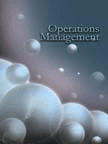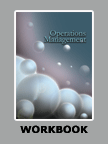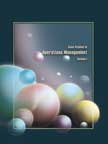Tesco's Supply Chain Management Practices
|
|
ICMR HOME | Case Studies Collection
Case Details:
Case Code : OPER054
Case Length : 19 Pages
Period : 2000-05
Organization : Tesco
Pub Date : 2006
Teaching Note :Not Available
Countries : UK
Retail
To download Tesco's Supply Chain Management Practices case study
(Case Code: OPER054) click on the button below, and select the case from the list of available cases:

Price:
For delivery in electronic format: Rs. 400;
For delivery through courier (within India): Rs. 400 +Shipping & Handling Charges extra
» Operations Case Studies
» Case Studies Collection
» ICMR HOME
» View Detailed Pricing Info
» How To Order This Case
» Business Case Studies
» Case Studies by Area
» Case Studies by Industry
» Case Studies by Company 
Please note:
This case study was compiled from published sources, and is intended to be used as a basis for class discussion. It is not intended to illustrate either effective or ineffective handling of a management situation. Nor is it a primary information source.
Chat with us

Please leave your feedback

|
|




<< Previous
"Customer focus and commitment to value has propelled Tesco
into a leadership position developing a dynamic 'virtuous circle' comprising
scale, efficiency and innovation within the supply chain."
1
- Stuart Ross, Director, Supply Chain & Distribution, Tesco,
2005.
"Tesco, the UK-based grocer, is an example of a success
story. They have learned how to go beyond Wal-Mart. They came to Dan Jones ten
years ago and asked, "How would Toyota run a grocery business?" And they've been
working hard to become the Toyota of the grocery business ever since."2
- James Womack, Co-Author, The Machine that Changed the
World, and Lean Thinking, 2005.
Introduction
|
In December 2005, AMR Research (AMR)3
announced the 'Second Annual Supply Chain Top 25' - a list of leading companies
that had employed demand driven supply chain practices and technologies
successfully. UK based retailing giant Tesco was ranked 9th in the list,
preceded by Dell, P&G, IBM, Nokia, Toyota Motors, Johnson & Johnson, Samsung
Electronics and Wal-Mart.
AMR's report ranked the companies based on past performance and future potential
on the basis of their supply chain management (SCM) capabilities. The return on
assets and inventory turns were given weightage of 25% each and 10% was for
growth in sales in the previous 12 months.
|

|
The remaining weightage of 40% was given to the opinion of AMR Research, based
on a structured voting methodology across AMR's team of analysts. Commenting
on Tesco's achievements, analysts at AMR commented, "The UK based grocer was
the first to really succeed with direct to consumer sales, while maintaining
killer inventory turns and growth."4
(Refer Exhibit I for details of top ten companies in 'Supply Chain Top 25').
|
|
Tesco is renowned for its best practices in SCM, which included lean
management and using RFID technology. The company has gained and maintained
advantage over its competitors by incorporating innovations in its supply
chain like point of sale data, continuous replenishment system triggered by
customer demand, primary distribution, cross dock5
Distribution Centers and use of a single vehicle to serve several stores. In
2001, the Sigma Project6 commended
Tesco's SCM efforts, "Only in the most integrated supply chain
organizations, such as Dell Computer, Wal-Mart, Tesco and Volkswagen, does
SCM appear to mean the integrated management of materials, information and
financial flows from raw material extraction to end-user."7 |
Tesco's Supply Chain Management Practices
- Next Page>>
|
|










